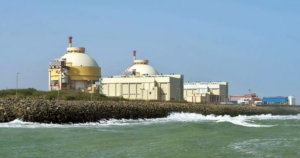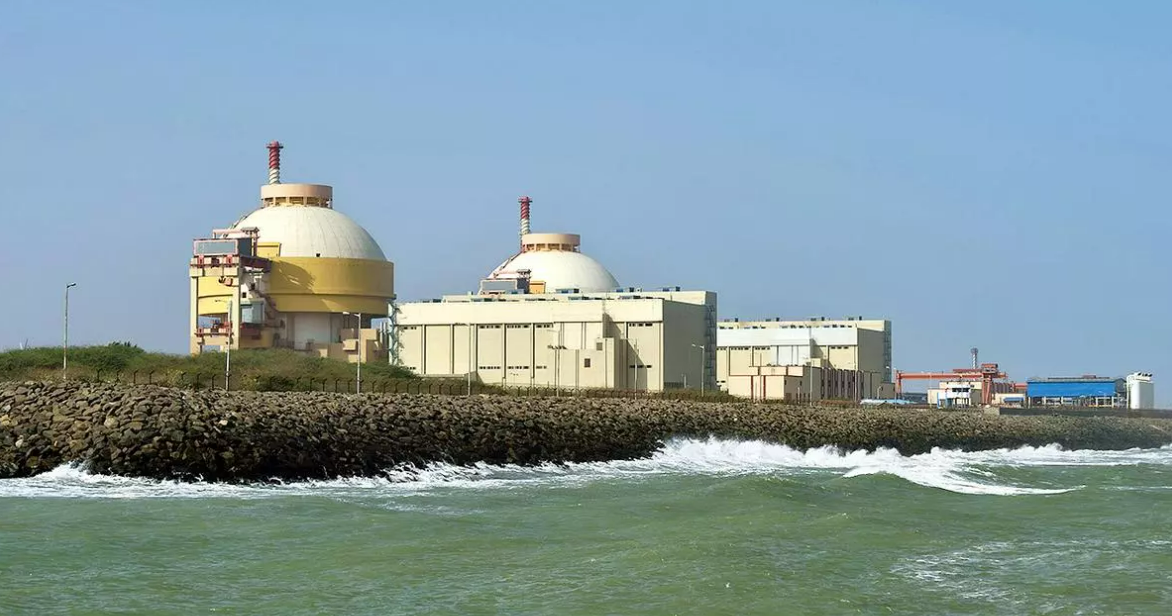Russia has extended an offer to India for the technology and expertise needed to build and operate floating “low power” nuclear power generation projects. This proposal was disclosed in a press release from Rosatom, Russia’s state-owned nuclear power company, following a meeting between Ajit Kumar Mohanty, Chairman of the Atomic Energy Commission of India, and Alexey Likhachev, Director General of Rosatom.

Key Highlights
- Floating Nuclear Power Plants (FNPPs): Russia proposes providing India with technology for constructing and operating floating nuclear plants.
- Land-Based Nuclear Units: Russia also suggests the serial construction of Russian-designed land-based nuclear units at new sites in India.
- Nuclear Fuel Cycle Cooperation: Enhanced cooperation in the nuclear fuel cycle and non-power applications of nuclear technologies was discussed.
- Kudankulam Project: The progress of the Kudankulam Nuclear Power Project, which features six Russian-designed light-water reactors, each with a capacity of 1,000 MW, was reviewed.
Floating Nuclear Power Plants: An Innovative Solution
Russia’s Expertise with FNPPs
Russia operates the world’s only floating nuclear power plant, the Akademik Lomonosov, stationed at the Arctic port of Pevek. This FNPP has garnered significant attention due to its potential to provide low-carbon power and heat for various applications, including district heating, desalination, and hydrogen production.
Advantages of FNPPs
- Flexibility: FNPPs can be deployed in remote or underserved areas, offering a versatile solution for power generation.
- Environmental Benefits: They produce low-carbon energy, aiding the transition to Net Zero and combating climate change.
- Applications: FNPPs can support various uses beyond electricity generation, such as district heating and industrial processes.
International Interest in FNPPs
At a recent International Atomic Energy Agency (IAEA) symposium in Vienna, experts, regulators, and industry leaders discussed the potential of FNPPs in achieving climate goals. IAEA Director General Rafael Mariano Grossi highlighted the active consideration of FNPPs globally and emphasized the need for thorough analysis of safeguards and regulatory implications.
Russia’s Strategic Offer to India
Meeting Details
The meeting between Rosatom’s Alexey Likhachev and India’s Ajit Kumar Mohanty covered several critical aspects of nuclear cooperation:
- Technological Exchange: Russia’s offer includes technology transfer and support for FNPP projects in India.
- Land-Based Nuclear Projects: Serial construction of land-based nuclear power units at new sites in India was also proposed.
- Nuclear Fuel Cycle and Non-Power Applications: Enhanced cooperation in the nuclear fuel cycle and non-power applications of nuclear technology was discussed.
Site Visit to Proryv Project
Indian nuclear industry representatives visited the Pilot Demonstration Energy Complex (PDEC) in Seversk, Tomsk region. This visit was part of the strategic “Proryv” (Breakthrough) project, showcasing Russia’s advancements in nuclear technology and its potential applications.
Also Read : Russia Fails in Rival UN Bid on Nuclear, Other Weapons in Space
Significance for India
India’s interest in small modular reactors (SMRs) aligns with the potential benefits of FNPPs. As India seeks to diversify its energy portfolio and enhance its low-carbon power generation capacity, Russia’s offer presents a significant opportunity. The collaboration could accelerate India’s transition to sustainable energy solutions and bolster its nuclear technology capabilities.
Conclusion
Russia’s offer to provide floating nuclear plant technology to India marks a pivotal moment in the two countries’ nuclear cooperation. With potential benefits ranging from low-carbon power generation to industrial applications, FNPPs represent a versatile and environmentally friendly solution. As India evaluates this proposal, the collaboration could pave the way for innovative advancements in nuclear energy, supporting both nations’ climate goals and energy security objectives.

